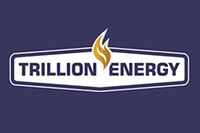A brief overview of oil price developments, supply and demand and significant market movers.
The International Energy Agency (IEA) confirmed that price pressures on the international oil market have suddenly tightened, mainly as a result of unexpectedly strong demand data in the US and China in the fourth quarter of 2012, Arab News reported.
“[P]olitical risk writ large, and not just in Syria, Iran, Iraq, Libya or Venezuela,” is now a dominant factor in the global energy market, the IEA also noted.
In addition, the agency raised its forecast for global oil demand this year from its estimate last month. It now predicts demand of 90.8 million barrels per day — 1 percent more than in 2012.
By early afternoon on Monday, West Texas Intermediate crude for February delivery was down 14 cents, at $95.42 a barrel, in trading on the New York Mercantile Exchange.
Brent crude fell 14 cents, hitting $111.75 a barrel on the ICE Futures exchange in London.
Energy trade group American Petroleum Institute (API) is forecasting a mixed bag for the nation’s oil economy as while production is surging, the overall economy is putting a drag on demand. It stated in a press release that petroleum deliveries were down 2 percent in 2012 compared to 2011 and noted that year-on-year declines in deliveries were seen in every month last year except May.
The API also stated that oil production in the US reached a 15-year high in 2012 — an average of 6.4 million barrels per day. It said the 13.8-percent increase in oil production, when compared to 2011, is the highest annual increase in more than 150 years.
Meanwhile, API’s chief economist, John Felmy, said 2012 was a mixed year for oil markets.
“The production bright spot reflects an industry investing and hiring at high rates, which significantly contributed to rising U.S. employment,” he commented. “Yet, demand was worse in 2012 than when the economy bottomed out in the recession.”
Saskatchewan Premier Brad Wall and 10 US governors sent a joint letter to President Barack Obama urging him to approve the Keystone XL Pipeline project.
In the letter, sent to the president on the eve of his inauguration, the premier and governors note that the pipeline is “fundamentally important to the future economic prosperity of both the United States and Canada.”
“We need greater pipeline capacity to move the oil – Canadian and American – that is vital to our shared goal of North American energy security,” said Wall in a press release.
The president is expected to rule on a revised application by TransCanada (TSX:TRP,NYSE:TRP) in the first quarter of 2013.
A report from Israeli news agency Haaretz states that Israel has made a deal with South Sudan to purchase oil.
South Sudan’s petroleum and mining minister, Dhieu Dau, announced the deal last week after returning from Israel, where he met with government officials.
Reports have not yet outlined which, if any, Israeli companies may be involved in developing oil projects, and there has not been any indication of how oil will be transported to Israel. South Sudan is landlocked, with the majority of oil exports going through a pipeline at Port Sudan. It is not clear if Sudan will allow tankers bound for Israel to dock at the port.





